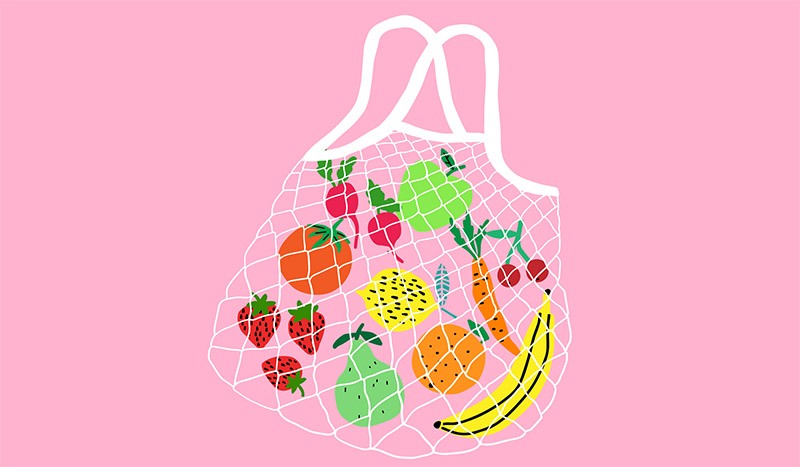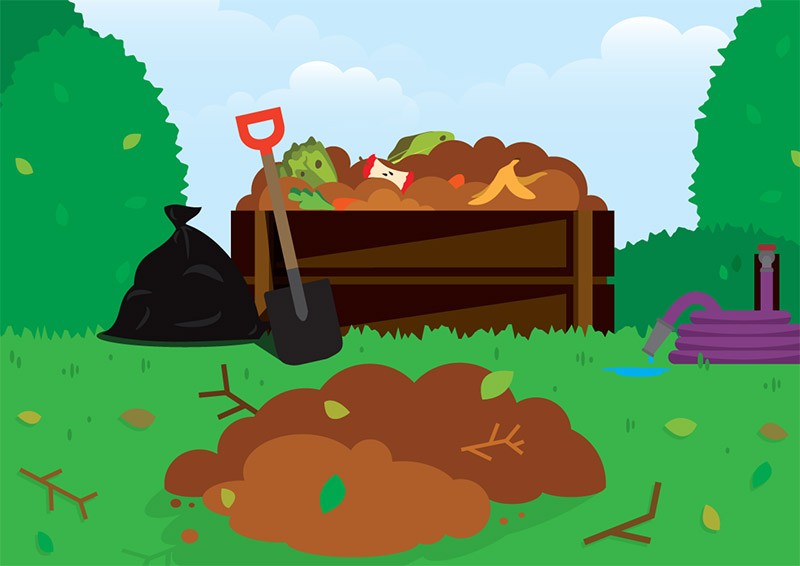
Did you know that a third of all the food produced for human consumption every year gets lost or wasted? That’s 1.3 billion tonnes!
Food waste is destroying the planet, occupying landfills and producing toxic methane gases as it decomposes. The United States Environmental Protection Agency predicts that a whopping 20% of the country’s methane emissions come from its landfills.
Also, agriculture takes up more of the world’s freshwater resources than any other industry, and consumes more than a quarter of total global energy – just to be literally wasted!
And it’s happening all over the world. Food waste occurs in low-income countries due to poor infrastructure and transportation, lack of refrigeration, as well as crowded, unsanitary markets. These are challenges that already affect quality of life in developing nations.
But in industrialised countries we are often just irresponsible – most food waste happens in grocery stores, restaurants, and at home. Perfectly good food is tossed because it no longer looks good, was forgotten, or was stored poorly.
We could all make a little effort all reduce our food waste footprint at home. Here are a few easy tips to get started!
Shop with awareness

Image credits: Shutterstock
Check what you already have at home, and bring a list to the grocery store. It helps to do some meal planning first to know exactly what you’ll need – and what you won’t. Don’t go shopping with an empty stomach either – we all know what happens then!
Once you’re there, stick to the list. If you have time, take more frequent trips to the store and purchase less. Avoid buying in bulk, and go for that funny-looking carrot. It’s just as nutritious, and will be thrown out if no one buys it.
Know your expiry dates
“Sell by” is a term for retailers to follow and “best by” indicates the date at which food may begin to lose flavour. Despite popular opinion, it’s not when the food will go bad. Food is usually not only edible, but still delicious after its “best by” date!
Your best bet is to observe the “use by” date, if it’s there. Let your instincts be the judge – does it still look, feel, and smell good? It’ll probably taste good too! Keep tabs on how soon your food will expire, and plan meals around that.
One tip that may help you keep track is to store the freshest food at the back of the fridge. Food that needs to go soon should be right at the front, where it’ll catch your eye right away.
Love your leftovers

Image credits: Shutterstock
Leftovers are a major source of household waste. When prepping meals be mindful of portions, because research shows that the bigger the portion, the more waste. If you do have leftovers, seal them in an airtight container for the next day or freeze them in a clear, labelled container.
Bring your leftovers to work for lunch. You’ll save money, likely eat healthier, and help to reduce all the waste that restaurants produce.
If you have huge amounts of leftovers, say after a catered event, contact a local shelter to see if they accept donations.
Learn how to preserve
Forget “preservatives” and think drying, salting, smoking, pickling, canning, curing, and freezing. These methods help food last so much longer, turning trash into delicious treasure.
You may discover new cooking techniques and recipes you love, like homemade sauerkraut or baked kale chips. There are tons of health benefits to fermenting food too, such as boosted immunity and gut health.
Know your fridge
Seventy percent of household fridges aren’t cold enough. They’re best kept between one to five degrees Celsius, but many don’t indicate their temperature – consider investing in a thermometer. Just think of the money you’ll save on food in the long run!
Google what foods should and shouldn’t be refrigerated. For example, tomatoes actually live longer and taste much better when left at room temperature and out of sunlight.
Compost food waste

Image credits: Shutterstock
Composting breaks down discarded food into natural fertilizer, helping your garden thrive! There are also countertop compost systems for people who live in cities. Not only do they break down food, but they can also feed houseplants and herb gardens.
Compost anything and everything organic: eggshells, food scraps, pieces of paper, tea bags, pits, etc. Many ethical-minded brands use compostable packing, so check labels before throwing things away.
Get creative
Learn how to use every part of a food before it goes bad and think of ways you can use aging food, like steaming wilted spinach, freezing yogurt to throw into smoothies later, or turning soft tomatoes into marinade. Grate an avocado pit into a smoothie for its fibrous benefits. Prepare broccoli stems alongside the florets. Did you know that coffee grounds are amazing fertilizers that ward off mosquitoes? You’ll be amazed at what you discover!
You can also use food to pamper yourself. Mayonnaise works wonders on the scalp, and mushy avocados make for very moisturizing face masks.
Visit stopfoodwaste.org for some great ideas for using old food. They have recipes that repurpose leftovers and excellent tips on making food last.
Final thoughts
Food waste is a global problem, and thankfully people are awakening to the reality of it. If we each were a little more responsible, we could lessen our impact as a society.
Being mindful about what we consume goes a long way. Don’t buy or use more than what you need, and trust your instincts. Use every part of a fruit or vegetable and devote a little time to preparing and preserving food.
As a bonus, think of all the money you’ll save by never wasting anything!
This is just a starting point, and we hope you feel inspired to minimise your personal food waste. You may find a renewed connection and appreciation for what’s in your fridge!
Featured image by Erin Agnoli
Earth.fm is a completely free streaming service of 1000+ nature sounds from around the world, offering natural soundscapes and guided meditations for people who wish to listen to nature, relax, and become more connected. Launched in 2022, Earth.fm is a non-profit and a 1% for the Planet Environmental Partner.
Check out our recordings of nature ambience from sound recordists and artists spanning the globe, our thematic playlists of immersive soundscapes and our Wind Is the Original Radio podcast.
You can join the Earth.fm family by signing up for our newsletter of weekly inspiration for your precious ears, or become a member to enjoy the extra Earth.fm features and goodies and support us on our mission.
Subscription fees contribute to growing our library of authentic nature sounds, research into topics like noise pollution and the connection between nature and mental wellbeing, as well as funding grants that support emerging nature sound recordists from underprivileged communities.
